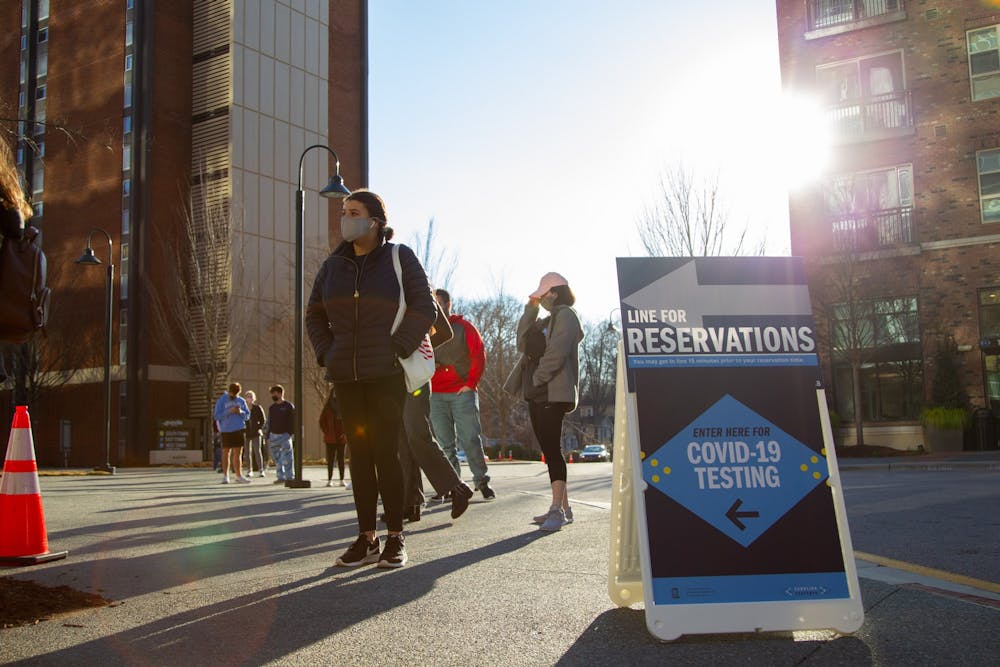For some members of the UNC community, the University’s Jan. 7 announcement that in-person classes would be delayed until Feb. 8 was a relief, but also an indicator of the potential risks of a spring campus reopening — albeit one less ambitious in scale than in the fall.
The decision to begin the semester remotely, released about a week before the start of the move-in period for on-campus students, came as the state's COVID-19 landscape continued to change.
At the time of the announcement, several states reported cases of a more transmissible variant of the virus, and daily COVID-19 cases crossed the 10,000 threshold in North Carolina.
Chancellor Kevin Guskiewicz told The Daily Tar Heel that by pushing back the start of in-person classes and extending the move-in period, the University hopes to provide flexibility to students worried about the safety of travel, while also distancing the arrival of students from the holiday season.
Provost Bob Blouin said the University consulted with a range of sources, such as UNC and county health officials, before deciding to delay in-person classes, in a statement to the Daily Tar Heel.
“Changes to the University’s spring plans were made with the health of the campus and community in mind,” Blouin said in the statement. “These decisions were not made lightly, and I appreciate how difficult the past year has been on Carolina’s students, faculty and staff, who have been asked to adjust to difficult and shifting circumstances.”
But Joseph Richards, a Ph.D. student and graduate teaching fellow in the communications department, said given the pleas issued by N.C. Department of Health and Human Services Secretary Mandy Cohen for North Carolinians to only leave home for essential activities, the decision to bring students back is an unnecessary risk.
And for Richards, the three-week delay is an acknowledgement of the danger.
“What I'm confused about is by acknowledging that, why not just do a completely remote semester?” they said. “It's hard not to see (bringing students on campus) as being okay with a certain number of people being put at risk for this disease. That’s what bothers me. Because if you acknowledge that COVID is bad, if you acknowledge that it is out of control, as far as spread goes, then I don't see why you wouldn't take every single precaution that you could to put the health and wellbeing of students, workers, staff and faculty ahead of any other consideration.”



